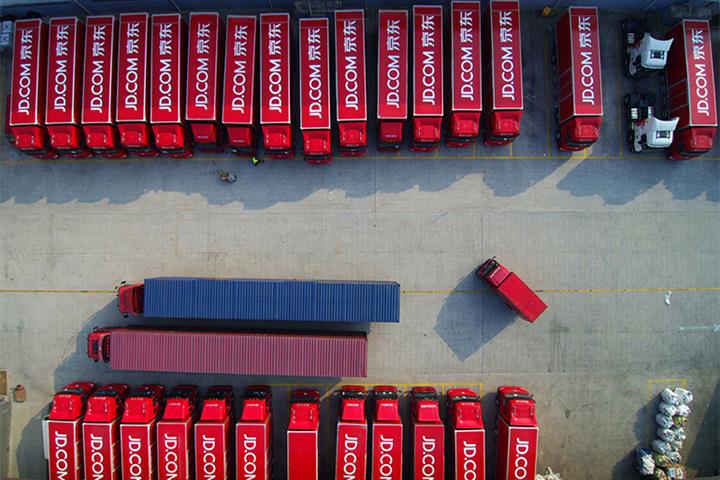 JD.Com Dives as E-Commerce Giant Falls Into Red, US Regulators Threaten to Delist More Chinese Firms
JD.Com Dives as E-Commerce Giant Falls Into Red, US Regulators Threaten to Delist More Chinese Firms(Yicai Global) March 11 -- Shares in JD.com tumbled as much as 17.7 percent in Hong Kong today after the Chinese e-commerce giant said it had lost money in both the fourth quarter last year and over the course of 2021 due to much higher costs and expenditure, and amid a wider sell-off as the US securities regulator hikes scrutiny of US-listed Chinese firms.
JD.com's Hong Kong-listed shares [HKG:9618] were trading down 14.5 percent at HKD202.80 (USD26) as of 1:30 p.m. China time. Earlier in the day they had slumped to HKD195.30. In New York, its stock [NASDAQ:JD] closed down 15.8 percent at USD52.52 yesterday.
Chinese stocks listed in the US slumped collectively yesterday, after the US Securities and Exchange Commission named biotech company BeiGene and four other Chinese firms as at risk of being delisted for not submitting documentation as required by the Holding Foreign Companies Accountable Act.
JD.com racked up net losses of CNY5.2 billion (USD822.3 million) in the fourth quarter last year, a far cry from the profit of CNY24.3 billion (USD3.8 billion) it made in the same period in 2020, according to the Beijing-based firm’s latest earnings results released yesterday.
Over the course of 2021, it squandered CNY3.6 billion, a very different story from the CNY49.4 billion it made in 2020. Revenue for the year, though, was up 27.6 percent to CNY951.6 billion (USD150.6 billion).
Macroeconomics, soaring raw material prices, stiff competition, the challenges of Covid-19 and other factors put the retail sector under large pressure, President Xu Lei said at the earnings conference call.
Marketing expenses jumped 42.7 percent year-on-year to CNY38.7 billion (USD6.1 billion), cost of revenue soared 29.2 percent to CNY822.5 billion and fulfillment expenses, which include procurement, warehousing and delivery, increased 21.3 percent to CNY59.1 billion, it said.
However, the number of active users on the platform jumped 20.7 percent from the year before to 569.7 million, it added. No performance forecast was given.
JD.com is confident of realizing above-average growth, Xu said. As China's internet sector enters a more mature stage, the traffic-driven growth model that was promoted through subsidies is being replaced by a higher quality and more efficient operating model, he added.
Editor: Kim Taylor